Making Compost with Azolla on APRIL 13, 2010
Nitrogen Fixer: Azolla is an organic farmer’s friend
- Azolla a nitrogen fixer is an organic farmer’s friend in many ways. Also popularly known as duckweed fern, mosquito fern, fairy moss, or water fern it belongs to the family of Salviniaceae that comprises even different species of water ferns. Although called duckweed they should not be confused with duckweed or water lens that belongs to the family Lemnoideae. Today we will talk about Azolla that are widely known as nitrogen fixers in the rice field. Let us see why Azolla is an organic farmer’s friend?
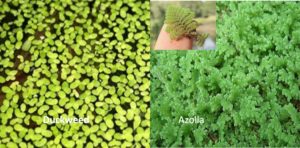
Duckweed and Azolla are beneficial to water plants
Why is Azolla called by so many names?
As it forms a carpet on the water surface of ponds, Azolla repels mosquitoes. The mass prevents enter of mosquitoes in the water and so are called ‘mosquito fern’. It is also known as duckweed as it resembles duckweed which is a moss. As Azolla also resemble mosses and as both propagate by spores they are often called fairy moss.
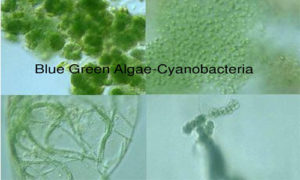
Association of Blue Green Algae and Cyanobacteria
The nutrient-rich Azolla is an organic farmer’s friend
Azolla is rich in nutrients such as carbohydrate, protein and other major and minor elements. These elements make it a rich source of dry fertilizer for the soil. The dry matter is also a source of feed for ruminants, poultry, pigs, and fish. So, Azolla is an organic or alternative source of feed for animals. An experiment showed a 10% weekly substitute of Azolla to have gained weight in chicken. Azolla can be mixed with other items to make high-quality chicken and duck feed to the relief of organic farmers.
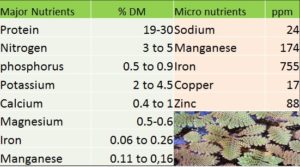
Azolla is an organic farmer’s friend due to its high nutrient content that improves soil fertility
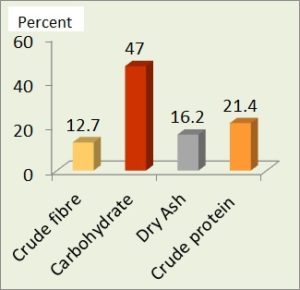
Azolla has high carbohydrate
Azolla is an organic farmer’s friend as it is a nitrogen fixer
The filamentous blue-green algae, Azolla harbor Anabaena azollae, a nitrogen-fixing Cyanobacteria under the dorsal leaves. By a special a mechanism they are able to carry out photosynthesis and release oxygen. Azolla and Cyanobacteria in symbiosis reduce atmospheric nitrogen for availability by the higher plants. It is a fast-growing water plant which for ages has been known to act as biofertilizer and green manure in the field of rice crop by fixing nitrogen of air. So, Azolla is grown as a green crop in the rice field. It serves as a dried biofertilizer and a substitute of green manure. The lovely floating water plants, Azolla is an organic farmer’s friend as it adds to the natural fertility of the soil and saves from excessive chemical fertilizer use. This practice of fertilization is known to increase the yield of rice and surely to increase the production of other crops.
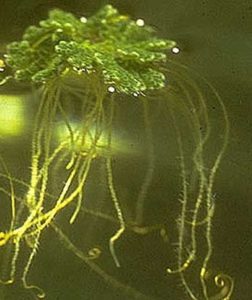
Floating Azolla is a beauty of nature
Azolla a compost fertilizer
The huge growth of Azolla, especially in the rice field and small ponds can be harvested, dried and made into compost as nitrogen fixers. Many small farmers dry the material bag in moisture condition and add to the crop.
Summary
Benefits of Azolla to the environment and organic agriculture
-
-
- Contains 19-30% protein and is a source of protein in forage for poultry, duck, livestock, and pig.
- Aids in nitrogen fixation i.e. convert atmospheric nitrogen from N2-NH4-NO3 to avail absorption by specifically the rice crop.
- A cover of Azolla around the rice field reduces around 50% growth of weed.
- It can increase yield comparable to by 30 to 60 kg/ hectare fertilizer nitrogen.
- It is a substitute for urea and potassium fertilizer and therefore Azolla is an organic farmer’s friend.
- Azolla in the dry form is compost, for growing ornamentals and pot plants.
- The nutrient contents of Azolla make it a source of organic fertilizer.
- The nutrient-rich Azolla is an organic farmer’s fuel as the dried forms are used as fertilizer.
- These water plants prevent mosquito breeding and keep the environment clean.
-
More on Nitrogen Fixation:

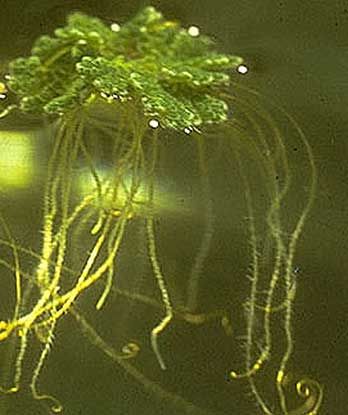
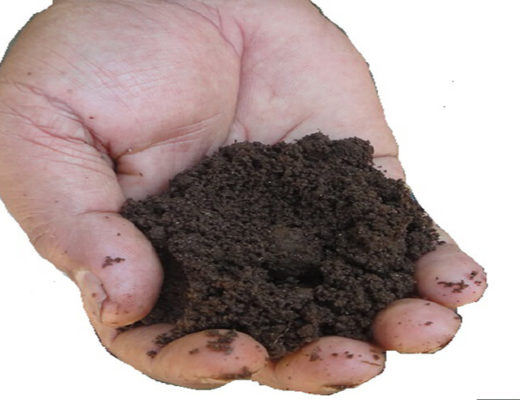
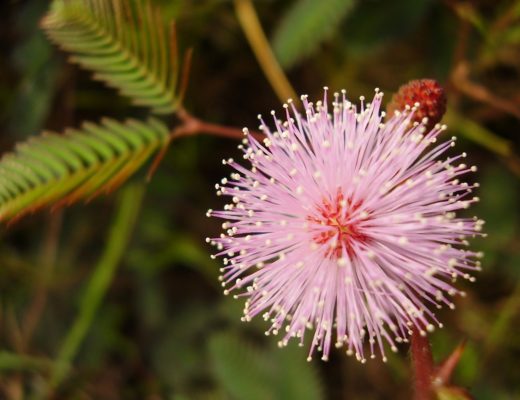

No Comments